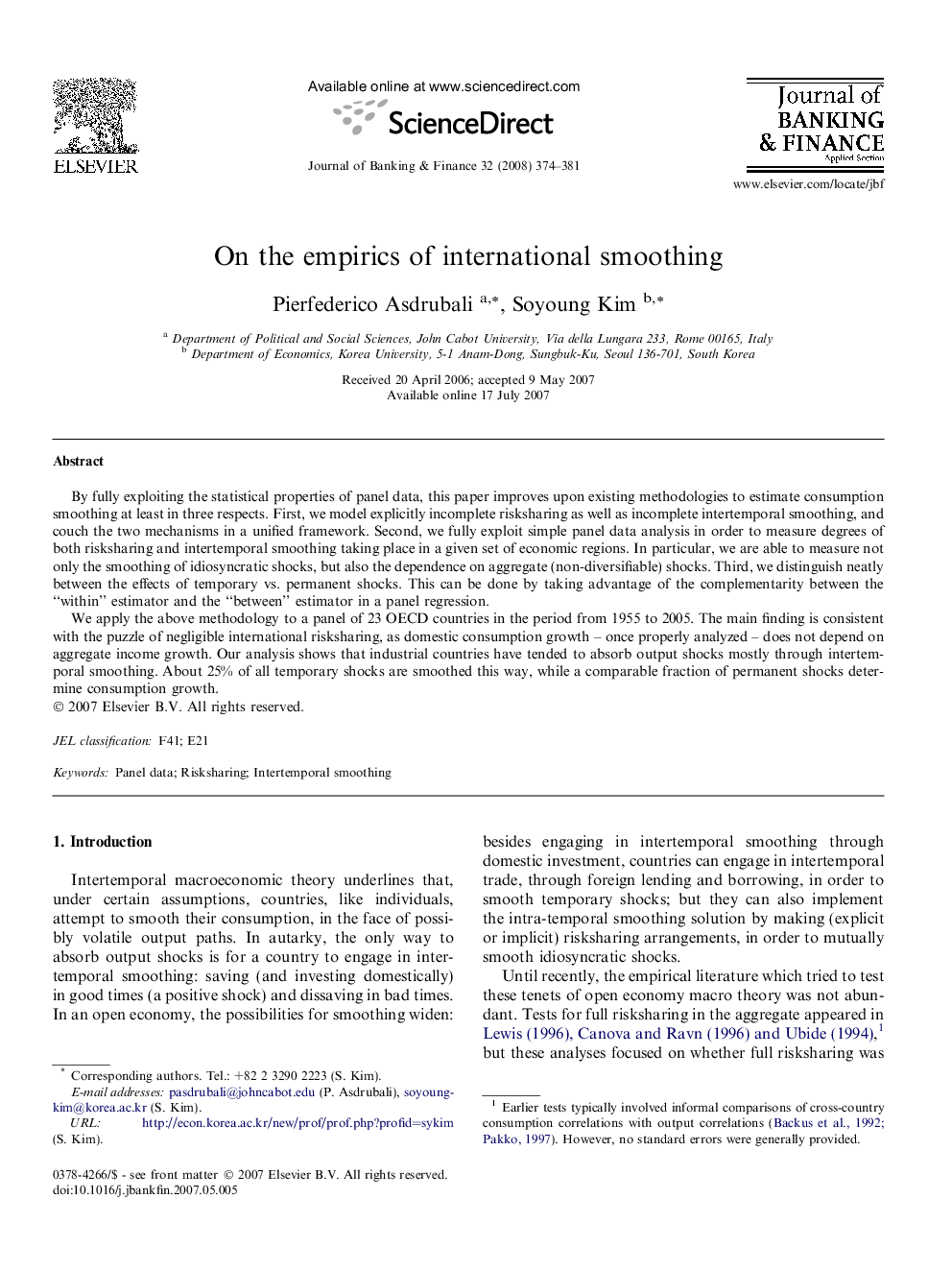| Article ID | Journal | Published Year | Pages | File Type |
|---|---|---|---|---|
| 5090957 | Journal of Banking & Finance | 2008 | 8 Pages |
Abstract
We apply the above methodology to a panel of 23 OECD countries in the period from 1955 to 2005. The main finding is consistent with the puzzle of negligible international risksharing, as domestic consumption growth - once properly analyzed - does not depend on aggregate income growth. Our analysis shows that industrial countries have tended to absorb output shocks mostly through intertemporal smoothing. About 25% of all temporary shocks are smoothed this way, while a comparable fraction of permanent shocks determine consumption growth.
Keywords
Related Topics
Social Sciences and Humanities
Economics, Econometrics and Finance
Economics and Econometrics
Authors
Pierfederico Asdrubali, Soyoung Kim,
